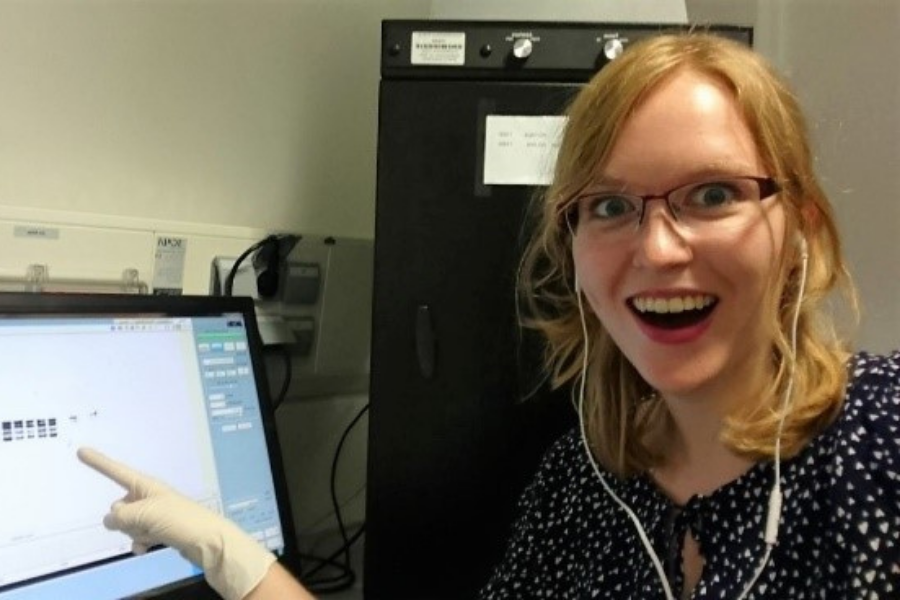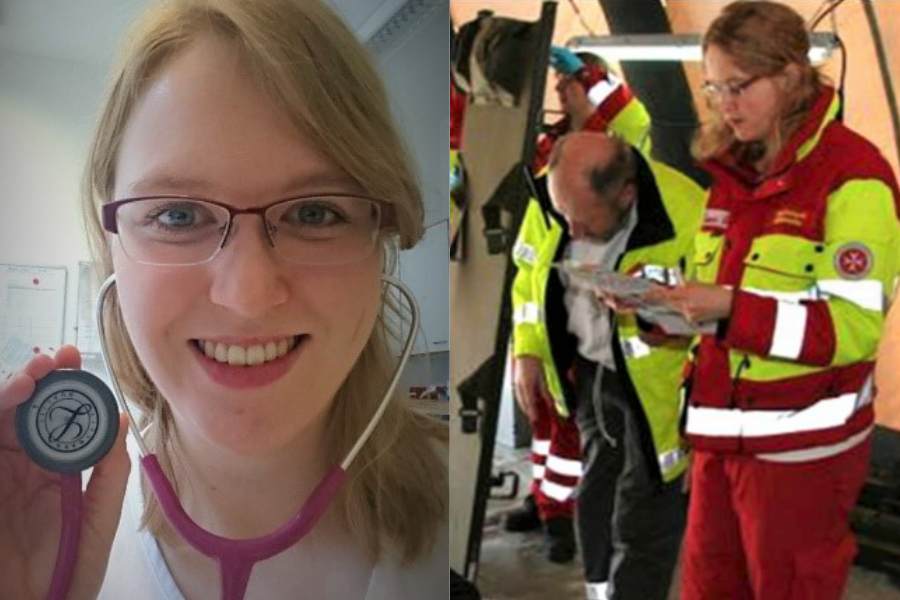As part of our focus on CGCC’s work in cancer, we caught up with Alica to find out more.

1. Where are you from?
I'm from a small - very beautiful - town (Ravensburg) in the South of Germany near Lake Constance and the Swiss/Austrian boarder.
2. What were you doing before joining LSHTM?
I've graduated Medical School in 2018 after spending more than a year in translational research (on a project of tumor immunology) to pursue a doctoral degree. Lately, I've worked in Switzerland in specialised training for General Internal Medicine with a focus on Medical Oncology.
3. Why did you decide to study a masters?
I've been always interested in the wide field beyond medicine. I was lucky to had two mentorships. One at a big consultancy company and one at a big pharmaceutical company where I got insight into market access of drugs and management aspects.
After an internship at WHO, I decided to do the Master of Public Health at LSHTM which combines the basic aspects of statistics, epidemiology but also health economics and health service management. It’s given me the chance to connect to very interesting people.
4. Did you want to be a scientist when you were young? If not - what did you want to be?
Yes, I've always wanted to be researcher. I think my curiosity led me into science. And then I became a volunteer for the German counterpart to St. John's Ambulance. Working with them, I got to know how much I like medicine in emergency situations and guiding patients.
5. What are the biggest challenges in cancer research right now?
That is a tough one. There are so many challenges and every day there are new insights into cancer medicine.
Thinking in a global perspective: How can we guarantee (equal) access to cancer treatment all over the world.
On a very personal perspective: Understanding the fundamental mechanisms of tumour immunotherapy which sometimes shows a particularly good effect and sometimes shows no effect at all.
Also devising new (targeted) therapeutic strategies, and exploring innovative treatment combinations.
6. Can you tell me more about your summer project?
I wanted to focus on the value assessment of cancer drugs. Together with my supervisor, we decided to combine this issue with the actual Covid-19 pandemic. But I will just start literature research soon :)
7. What do you hope to have achieved in 10 years’ time?
I hope to have found a position where I can improve the health system not only on an individual patient level. I would love to decisively contribute to the implementation of new treatment innovations, value assessment, communication or organizing health services.
8. Favourite new thing you’ve learned so far on the MSc?
Creating a macro on excel. No, I'm joking!! I really liked the frameworks to analyse health policy. But the best are the wonderful and interesting people.
9. What is your inspiration choosing medical oncology?
I think my inspiration is the interesting science around cancer and drug development. But also the very intense relationship with patients. Guiding patients through their treatment is not always easy but the work gives meaning to me. I was really lucky to get to know 3 outstanding dedicated oncology consultants during my training (my doctoral supervisor Robert Zeiser, Alex Bradshaw from Newcastle, where I was interning, and Christian Taverna in Switzerland).
10. What do you do to unwind?
I like being in nature for a walk (far too seldom a run) or reading a good book.
11. Top tips for surviving a pandemic?
Studying a masters, writing a doctoral thesis... And keep looking ahead with a positive mindset.
12. If you were trapped on a desert island and could only take three things, what would they be?
- A water purification device
- Satellite telephone
- Sun protection (I get terrible sun burn) - maybe in form of an inflatable boat
But three things are definitely not enough as my family has to be there, too!
13. If you could give one piece of advice to the future ‘researchers’ out there, what would it be?
Stay curious (and motivated).
LSHTM's short courses provide opportunities to study specialised topics across a broad range of public and global health fields. From AMR to vaccines, travel medicine to clinical trials, and modelling to malaria, refresh your skills and join one of our short courses today.

